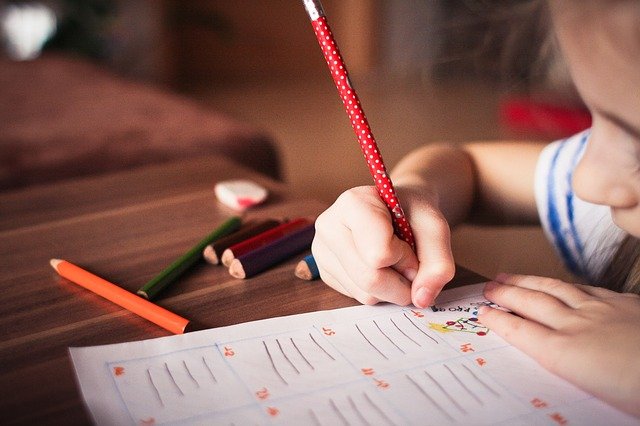We have been in the early childhood education game for a long time. A very long time. We have seen so many things in terms of words and actions from preschool aged children and confess we are rarely surprised any more at the variety of behaviors. These behaviors range from wildly entertaining to decidedly inappropriate (some of them we will be happy if we never see again). Ultimately all of them fall within the range of normal behavior. Put another way, there are no four-year-old kids inventing new ways to be human. Even with all of this experience and the benefit of seeing dozens of children each day exploring the world, we have not forgotten what it means to be a parent to one child or even (in our case) four. And we know the first time you see or hear about your child doing something in the… ummm… third standard deviation of human behavior, it can be upsetting and cause all manner of thoughts.
Did I do something wrong as a parent?
Is there something wrong with my child?
Is my child a <insert negative label here>?
Did my child just destroy their future?
We will humorously say that the answer is technically “maybe”, but realistically the answer is probably not. As in almost definitely not. Really it is unlikely that anything has been done that can’t be recovered from. Thankfully, life rarely works that way.
But there is another question of which we are keenly aware that follows these others. When the context is “somebody saw that” (and in the age of no private life – being “seen” is the norm), the question can become “are they judging me?”. It is an uncomfortable question, and while judging has some social value in helping us all live together in a group while forming norms of behavior, it is rarely the case that you are being judged in a way that matters. Honestly, if you are being judged harshly as a parent by another parent, just wait around for an hour or two and the opportunity will likely arise to turn the judge into the judged. When you are asking us as people who work with young children and who, in many cases, have adult children that made it through childhood, the answer to “Are you judging me?” is going to be no. As in almost definitely no.
Parenting is hard. And in some ways, the more we know about what works and what doesn’t work from a scientific basis, the more it can seem like we have done something wrong. Who can know all of these things that are emerging? How can I trust what I read? How am I supposed to keep up with new information as it arises? Do I trust my gut or pay attention to a broader and more vetted point of view? We are inundated as parents all the time. And sometimes it seems just when you think you have a good routine down is about the time when you notice an article talking about how your routine is going to deprive your child of happiness when they are 30. Uggh. Throw in work, expectations that come from our subscription lifestyle (gym memberships, shared interest groups), a barrage of “look at me” messages laser targeted to actually make us do so, and it is even harder to feel like we are fully on top of the parenting gig.
It turns out that part of our job as early childhood educators is to dedicate time to keep up with all of this child development stuff. First thing we will tell you that we have learned is that the time from when the first press exposure for new parenting/child development research happens until it actually becomes accepted best practice is about 5 years, and almost none of the ideas in the initial press exposure (those parenting ideas and articles we are inundated with), survive peer review to become parenting canon. Yes – like most science, it takes a lot of effort to discover a fact, but very little effort to produce a press release. So take things with a grain of salt when they first come flooding into the mainstream. The second thing we will tell you is that even if it is good information and you feel like you missed the boat, it is never too late to try something new. People – especially children – tend to be resilient. You are allowed to adapt. The final thing we will tell you is that the idea that there is one, long-term way to do things is silly. Living in a diverse, constantly changing society continuously creates a stream of new things to consider as parents. The rate of change is doing nothing but accelerating. Ultimately we at Greystone House teach and follow a values based education because they provide a series of checks and balances for both how we adapt to as well as influence change happening around us. Your children learn values at Greystone House and that makes them easier to reinforce at home. Exercising those values consistently makes it far more likely that what you are doing overall will work out fine in the end.
After all is said and done what we really want you to know is that we as early childhood educators are here as a sounding board, a listening ear, an idea factory, and ultimately as a parent resource. We take partnering with our families and caring for children very seriously. So if you have a concern, if you don’t want to bring it up in a klatch because it seems too public, if you are worried someone else will judge you – just let us know what you need. The phone number is everywhere you would expect and the emails do get checked.





